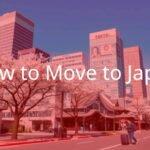If you’re wondering how much rent in Japan costs, the answer depends on where you want to live. The weak yen has made many Japanese cities a bit cheaper for expats, but rent is still a big part of living expenses. On average, a one-room apartment (about 20-40 square meters) without utilities costs between ¥50,000 and ¥70,000 per month. In big cities like central Tokyo, similar apartments often start from ¥100,000. In total, a single person in Japan spends around ¥217,746 each month, with about ¥88,163 going to rent. For a family of four, monthly expenses average around ¥649,018, and rent is about ¥191,842.

If you want to live in Japan, you need to understand how the rental market works. Rents are different depending on the city and region, and there are special fees and rules. From busy Tokyo to quieter, cheaper areas, many things affect housing costs. Doing good research and planning is important.
What Decides Rent Prices in Japan?
Many things come together to decide what rent costs in Japan. It’s not only the apartment’s size. Where the place is, what kind of property it is, and the current market all matter. Knowing these points can help renters make smarter choices and maybe find cheaper options.
Location and Region
Location is the biggest factor for rent in Japan. Big cities, especially Tokyo, have the highest prices. Central Tokyo, for example, has some of the priciest land in the world, so rent there is also high. Cities like Osaka and Kyoto are a bit cheaper than Tokyo, and living in smaller cities or suburbs can save you a lot. For example, a single person’s average monthly spending in Tokyo is about ¥318,407, but in a cheaper city like Gifu, it drops to around ¥123,000.
Here’s a comparison:
| City | 1-Bedroom Rent Average |
|---|---|
| Central Tokyo | ¥164,000 |
| Kyoto | ¥74,000 |

If living near the center isn’t needed, you can save a lot by picking an outer district or smaller city.
Apartment Size and Type
Bigger places with more rooms cost more. A small one-room (1R or 1K) is cheaper than a bigger, multi-room apartment. In Japan, “L” means living room, “D” means dining room, “K” means kitchen, “R” means a single room, and “S” means storage. For example, a 1LDK is an apartment with one bedroom plus a living-dining-kitchen area, and a 1K is one bedroom with a separate small kitchen. In Tokyo, larger family apartments can cost ¥190,000 or more per month.
The type of building also matters. In Japan, a “mansion” is a concrete apartment building, usually taller, and these cost more than “apāto,” which are often two-story wooden or metal frame buildings. Most long-term rentals are unfurnished, so tenants bring their own appliances and lights. Furnished apartments are rare and more expensive.

How Close the Apartment Is to Transport
Being close to a train station can raise the rent a lot. Apartments only a few minutes from a station are very popular and pricier. If your apartment is more than a 10-minute walk from the station, you can usually get a lower price. If you’re trying to save, choosing a place that’s a little further from the train can be a good idea.
Living right in a busy city center will also mean higher rent. Moving away from busy business or shopping areas makes housing cheaper in all big cities, not just Tokyo.
Building Age and Features
Newer apartments with things like elevators, secure doors, package lockers, and in-room laundry cost more. Older buildings can be cheaper, but might be smaller or less modern. Well-kept older buildings can be worth more, but apartments with problems-like a “stigmatized property” (where a sad event happened)-can be 20-30% cheaper if you don’t mind.
Average Rent in Popular Japanese Cities
Averages for the country only tell part of the story. Here’s a closer look at rents in Japan’s main cities:
| City | 1-Bedroom Monthly Rent | 3-Bedroom Monthly Rent |
|---|---|---|
| Tokyo | ¥95,000 | ¥190,000+ |
| Osaka | ¥81,250 | ¥166,000 |
| Kyoto | ¥74,000 | ¥163,000 |
- Tokyo: The most expensive city. For singles, total monthly costs average ¥318,407. Living further from the city center or in smaller apartments brings the price down.
- Osaka: Cheaper than Tokyo with a lively city feel. 1-bedroom average is around ¥81,250.
- Kyoto: Known for traditional culture. 1-bedroom is about ¥74,000.
- Yokohama: Near Tokyo but more affordable, with monthly costs for singles at about ¥201,000.
- Sapporo: Located in Hokkaido, it offers lower living costs and is great for those who like a cooler climate.
- Fukuoka: On Kyushu island, rents are lower than in big cities. For example, Miyazaki and Kumamoto report total monthly costs for singles at about ¥131,000-¥134,000.

Rent Ranges in Tokyo: By Ward
Tokyo is split into 23 central wards, all with different rent levels. Knowing these differences helps people choose the right spot for their budget.
Most Expensive Wards
Central districts like Chiyoda, Chuo, Minato, Shibuya, Shinagawa, and Shinjuku charge the highest rents. In places like Minato (home to embassies and foreign companies), even a small apartment can start at ¥100,000, and bigger units go much higher. If you want easy access to offices and city attractions and you have a big budget, these are the best but most expensive choices.
Cheaper Wards and Suburbs
Some wards, such as Meguro, Ota, and Setagaya, are quieter and have lower prices. A 1K (one room with a kitchen) in these areas can cost about ¥80,000-¥90,000 per month. Neighborhoods close by, like Toshima or Nakano, also give more affordable options with short commutes to busy areas like Shinjuku or Shibuya.
Options Outside the 23 Wards
Further savings come if you look outside the 23 central wards to places like Katsushika, Nerima, Itabashi, Adachi, and Edogawa. With a budget of ¥100,000, you can often get a much larger 1LDK (one-bedroom with living-dining-kitchen) here. Even more affordable options are in the suburbs of neighboring prefectures such as Saitama, Chiba, or Kanagawa. For example, Wako in Saitama offers lower rents and is still within commuting distance to Tokyo’s center.
What Are the Upfront and Monthly Costs of Renting an Apartment?
Renting in Japan involves more than just paying rent each month. Several extra fees can make moving in expensive. Here’s what you might need to pay:
- Security Deposit (Shikikin): Usually equal to one month’s rent. This is held by the landlord to cover any damage or unpaid rent. Some parts may be deducted (for repairs, cleaning) when you leave.
- Key Money (Reikin): A non-refundable gift to the landlord. Often about one month’s rent. This fee is less common now but still exists at some properties.
- Agency Fee: If you use a real estate agent, you typically pay them up to one month’s rent.
- Guarantor Company Fee: Foreigners often need a guarantor company, which usually charges half a month’s to one month’s rent. This is an annual fee.
- Management/Maintenance Fees: Building fees for upkeep of shared spaces. About ¥10,000 per month.
- Advance Rent: You usually pay at least one month’s rent before moving in, sometimes two months’ worth.
All these together often add up to about five times the monthly rent as your initial payment.

Utilities and Other Living Expenses
Rent does not usually include utilities or many other monthly expenses. Most people must pay these on top of their base rent:
- Electricity, Gas, and Water:
- Utilities cost about ¥13,000 per month for a single person.
- Electricity: ¥7,000 on average
- Gas: ¥3,500 on average
- Water: ¥2,500 on average
- For a larger apartment (85m²), total utilities are around ¥25,730 per month.
- Internet and Mobile Phones:
- Internet: Pocket WiFi starts at ¥3,500/month, wired internet usually ¥4,500/month.
- Mobile phone plans start at ¥2,000 for discount carriers, typical plans about ¥6,000/month.
- Major providers include Docomo, au, SoftBank, and Rakuten Mobile.
- Other Living Costs:
- Groceries: ¥20,000-¥30,000/month for one person
- Eating out: Cheap meals start from ¥500
- Transport: Monthly train pass about ¥8,000
- Haircuts: From ¥4,000; quick cut from ¥1,000
- Entertainment: Movie ticket around ¥1,500-¥2,000; karaoke from ¥300/hour
- Gym: About ¥8,546/month
- Childcare: From ¥10,000 to over ¥100,000/month, depending on type
All of these must be considered when planning your monthly spending in Japan.
How to Save Money on Rent in Japan
Finding an affordable place in Japan can be tough, but there are good ways to keep costs down:
Pick Cheaper Areas
Since location greatly affects rent, choosing neighborhoods outside central wards or in nearby prefectures will save money. Even in popular areas, if you pick an apartment that’s a bit farther from the main train station, you’ll pay less.
Sharehouses, guesthouses, and “gaijin houses” are good for people who want lower rent and fewer upfront fees. These places are often furnished, sometimes don’t require a guarantor, and are easier to rent for newcomers or foreigners. Social apartments also provide shared spaces and social activities, which can help you save money and make friends, too.
Negotiate Terms
While rent isn’t always negotiable, you might get a better deal if you move during the off-season (April-June or October-December). During busy moving months (January-March), landlords are less likely to give discounts. Real estate agents can sometimes help talk landlords into lowering the rent or waiving fees like key money, especially if the place has been empty for a while.
- What Is a Maiko? - July 13, 2025
- What Does Domo Arigato Mean? - July 12, 2025
- What Does Naruto Mean? - July 12, 2025









